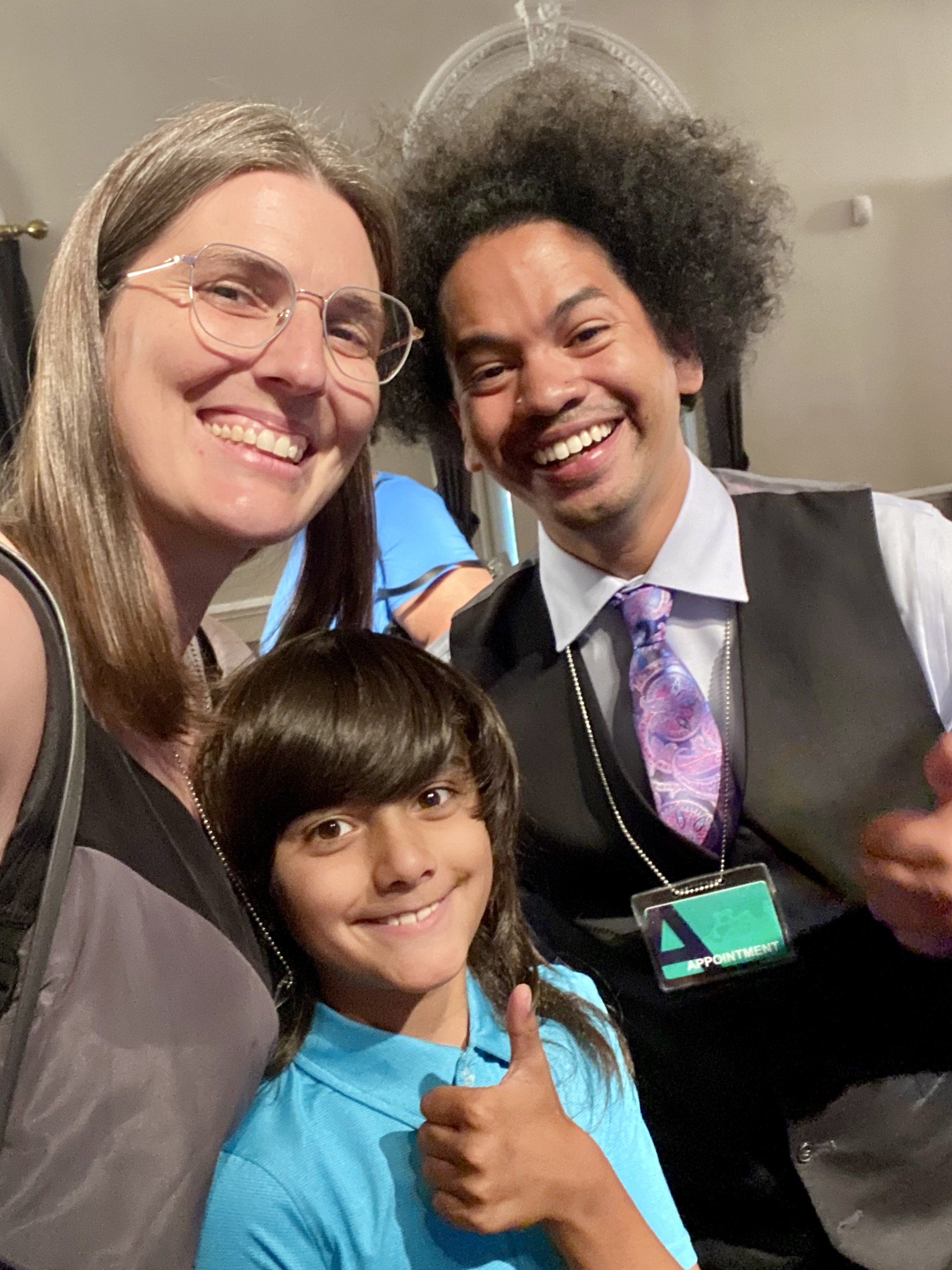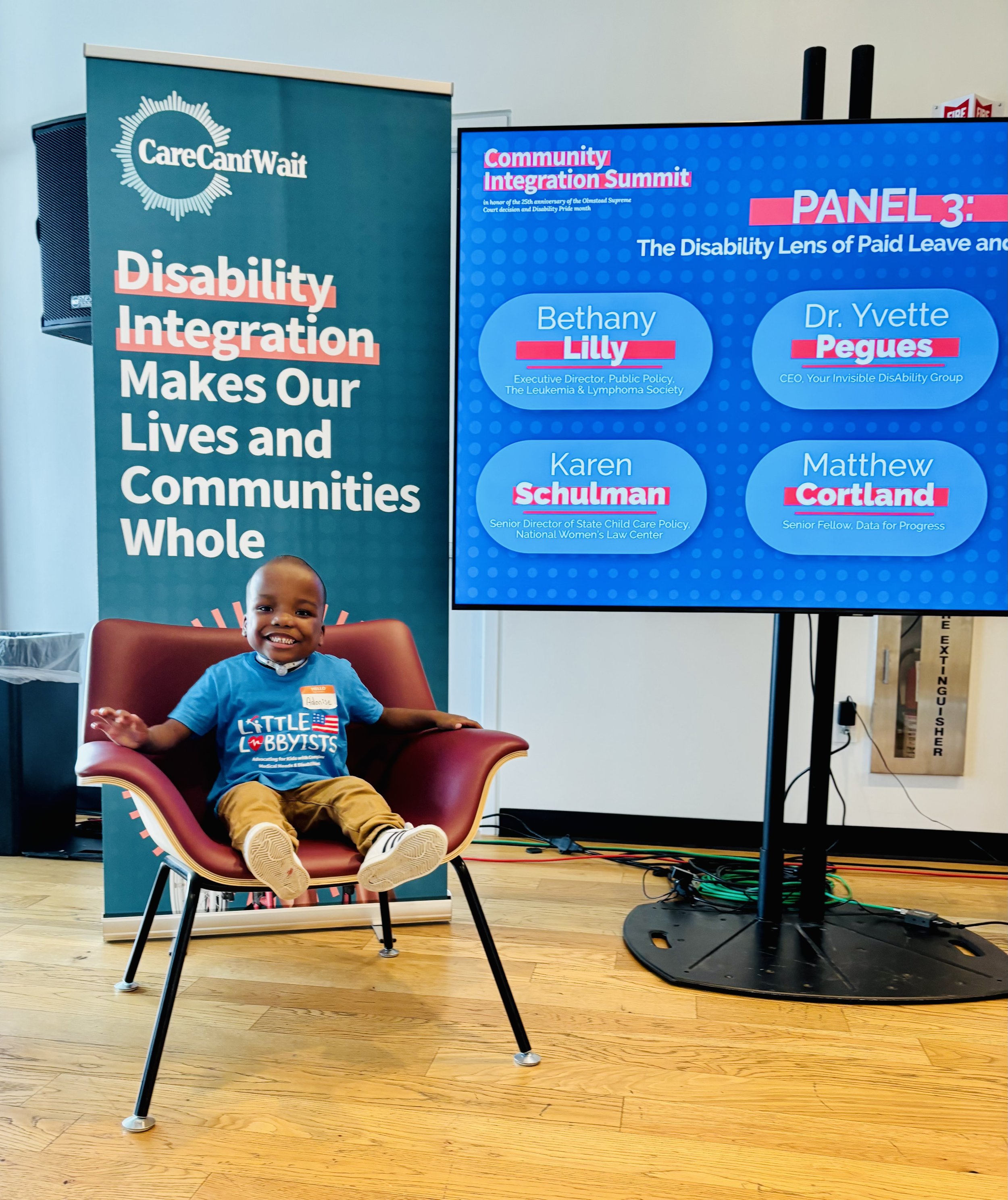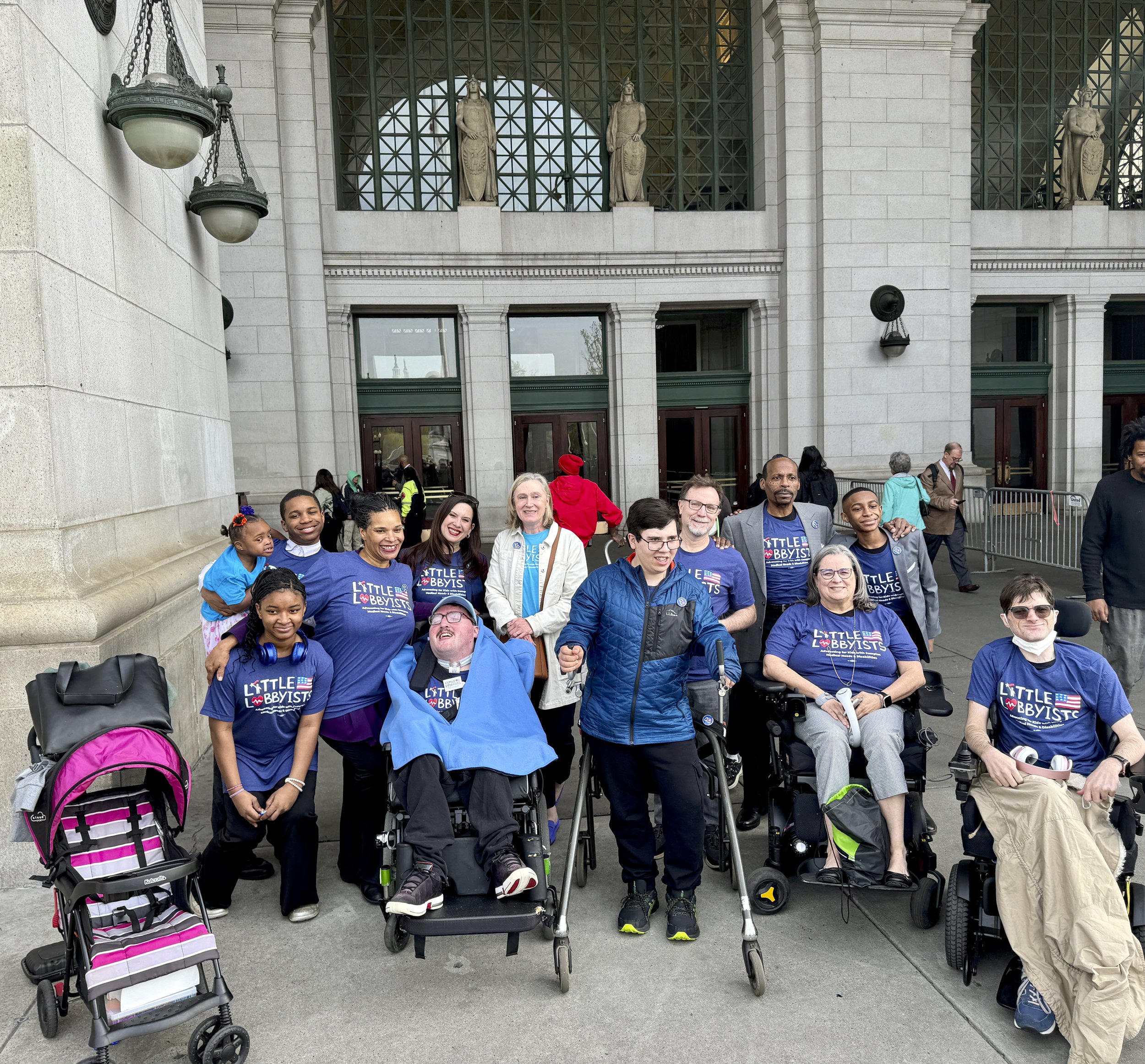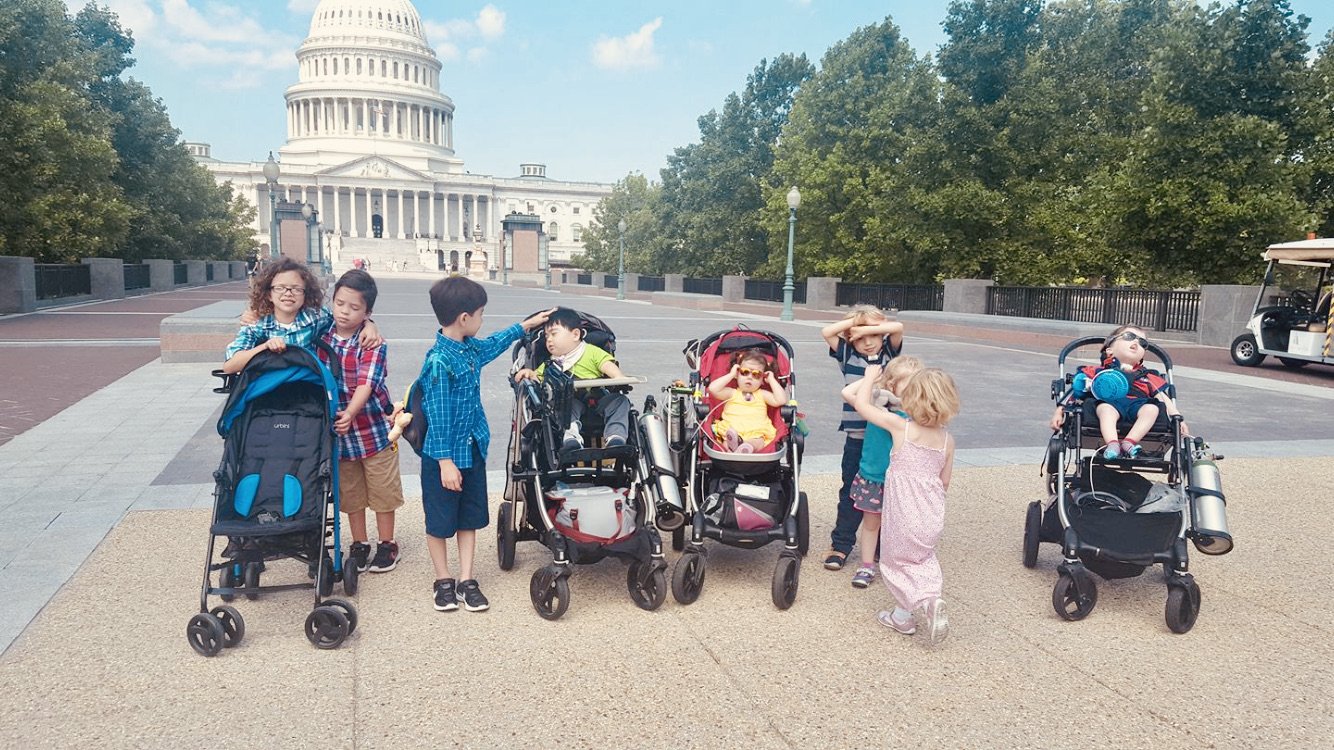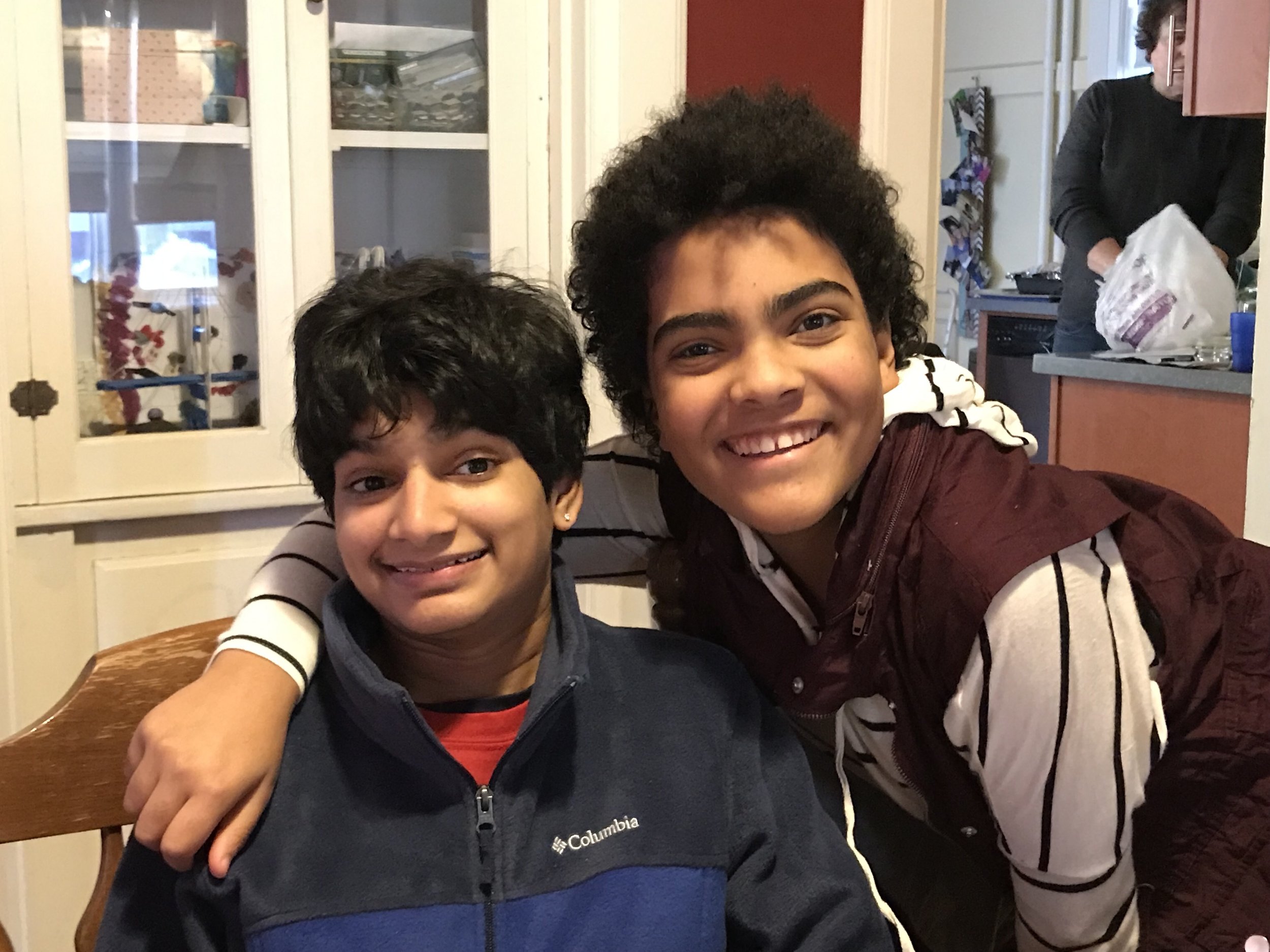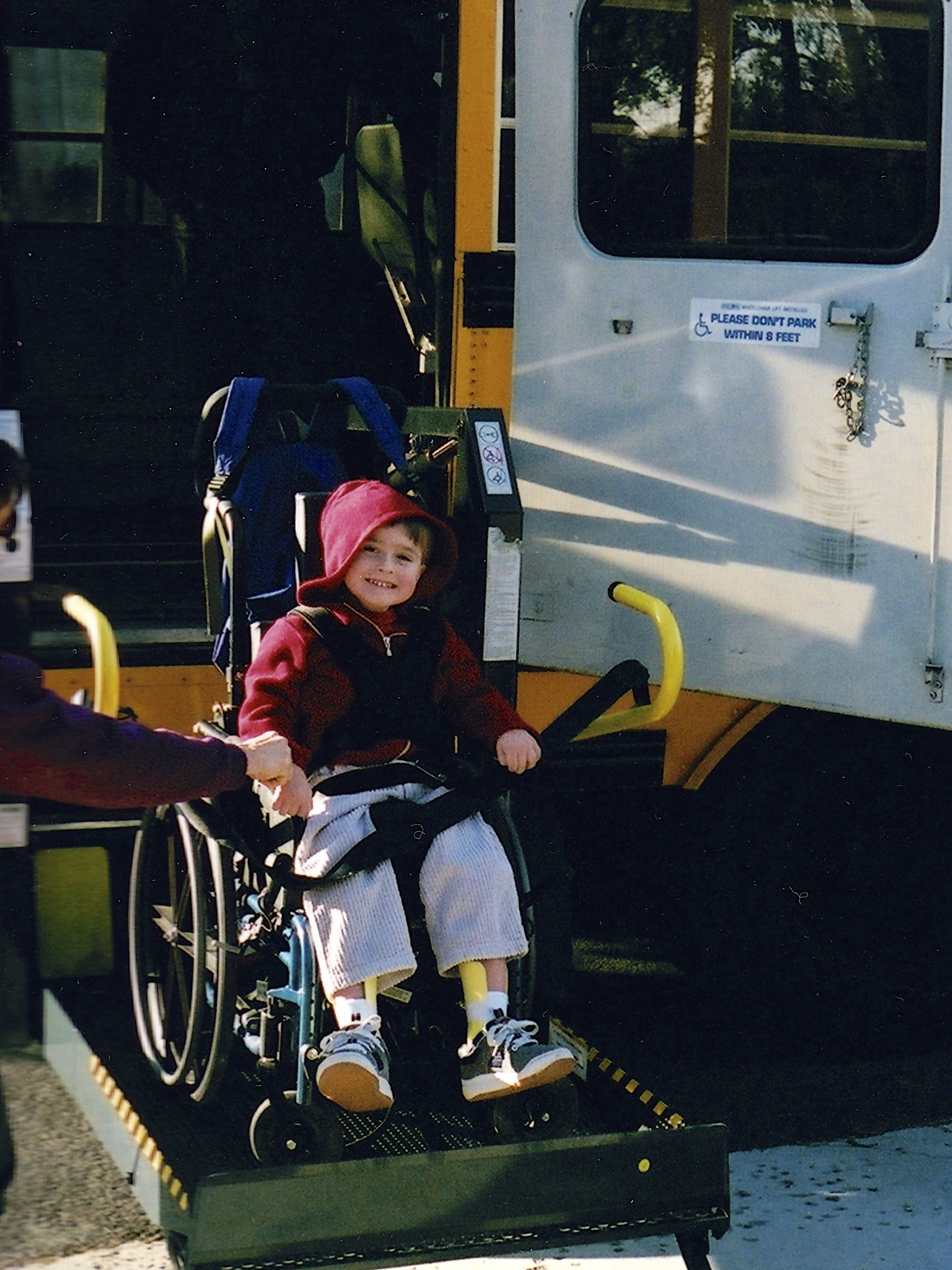Welcome to our Blog!
Here you'll find updates, thoughts and reflections, statements on legislation, speeches, and more.

- "101" Series 13
- Capitol Hill 16
- Caregivers 3
- Caregiving 1
- Elections 2
- Family Advocacy 66
- Family Stories 7
- Federal Issues 20
- HCBS 30
- IDEA 4
- Journey with Jeneva 19
- Know Your Rights 3
- LL Statements 5
- Legislation 1
- Medicaid 21
- News 2
- On Capitol Hill 3
- Our Voice is Our Power! 4
- Pandemic 19
- Reflections 57
- State Advocates 14
- The ACA 31
- VOTE! 6
Looking too far ahead can make you panic; staying in the moment isn’t always enough. In these early days of 2025, we might modify that advice and say, “Don’t think more than one month ahead.” So what can you do this month?
Throughout her career, Congresswoman Wexton championed protections for pre-existing conditions and the ACA, ensuring that families like mine could access the care we needed. She amplified our voices, sharing our stories with fellow legislators and on the House floor.
For our kids with disabilities and complex medical needs – with their caregivers, medical and mobility supports, loved by their families, living in the community – to be integrated as a welcome part of White House traditions is a truly joyful thing. It’s also powerful representation.
Ableism has always taken a front-row seat on these journeys. Medical professionals assume they can explain what life will be like with a diagnosis or medical intervention. Why do doctors and nurses feel they have the right to illustrate a life they only understand through the lens of a professional, not a personal context?
My biggest priority as an advocate is to make sure medically complex kids have access to nursing care at home. My son spent most of the first year of his life in an institution because we couldn’t get the support we needed to bring him home - I don’t want that to happen to anyone else.
As I spoke alongside caregivers, care workers, those receiving care, and elected officials, I couldn’t help but note the common thread that connected us all. My care story might not be the same as yours, and your care story might not be mine, but it is undeniable that we all have a care story. This tour felt like we were one community: we each had a care story that united us in deeply personal and urgent ways. Care wasn't something that happens to other people; we are all involved with care.
I belonged in that room. Sitting there watching ASL interpreters speak for the Deaf, listening to incredible speakers communicating using Augmentative and Alternative Communication (AAC) devices, the sounds of happy stimming all around me, I realized for the first time that I belonged in a gathering of disabled people because I am disabled. And letting myself believe that for the first time in my life felt like coming home.
Our time in DC spoke to much of the work and education we have to continue to do as a family. We are strong and come from a long history of revolutionaries. May we always tap into that and teach Donnie how he will do the same so he can create the blueprint for the next generation of kids like him.
“I would want people that watch the documentary to understand that simply because people are different isn’t a bad thing, because we all are different, and because we all are different is a good thing, and that is what makes me special and everyone special.” (Isra’El Winston)
When asked what he’d like other children to know about advocacy, Isra’El responded, “I want kids to know that they can stand up for themselves and others. I have learned to express my feelings and to do my best to overcome my fears and that we can stand together to support each other, lift each other, and empower each other.”
The Integration Mandate protects the right of people with disabilities to receive their Medicaid benefits in their community of choice. These Medicaid benefits include Home and Community-Based Services (HCBS), which may include medical and rehabilitative services, assistance with activities of daily living (ADLs) from home care workers, private duty nursing services (PDN), transportation services, home modifications, and much more.
Harris has been a supporter of our families since our founding in 2017 when she listened to our children’s stories, shared them with the country, and helped stop congressional Republicans from dismantling the ACA. Her presence meant a lot, and she has been consistent in her support of our children’s rights to health care and Medicaid services ever since.
Olmstead is what makes our family work. Olmstead means James can get the nursing care he needs to live safely at home with our family, attend school, and have a life. Today, James is an Olmstead success stor -–but that wasn’t always the case. James spent most of the first year of his life in an institution. Institutionalization of children is not a thing of the past. It happened to our family, and it is still happening to medically complex kids just like James.
“I’m proud to be disabled. It’s part of who I am. … Olmstead means I have a nurse who goes to school with me to make sure I keep breathing while I’m in class … who comes to my house at night to manage the ventilator to keep me breathing … I’m here today because I’m an Olmstead success story – I’m getting the care I need to live my life the way I want to live it. I want to make sure that other disabled people have the same access to the community that I do.” (James McLelland)
“By removing barriers to health care and social services, this rule advances justice for people with disabilities who have for too long been subject to discrimination. No diagnosis should be missed because of an inaccessible mammogram, no patient should be left with questions about test results due to inaccessible websites, and no life should be valued less due to disability.” (HHS OCR Director Melanie Fontes Rainer)
“The work you do matters. You are there for families when they need you most — providing comfort, strength, and compassion that inspire us all. Your devotion to the people and communities you serve represents the best of America’s character, and we will always stand with you, ensuring you are seen, valued, and rewarded fairly for the work you do.” (President Joe Biden)
The U.S. Department of Transportation has proposed new regulations that, if adopted, will grant a number of new rights for to disabled passengers on airlines, particularly those who use wheelchairs. These changes are long overdue. Your voice is important! The public comment period ends on April 27.
This honest and relatable book is a roadmap to parenting a disabled child, covering all the essential topics we struggle with: diagnosis, school, doctors, insurance, financial planning, disability rights, and life as a parent caregiver.
In my experience, there are two types of courage.
There is the type of courage where we put on our armor and charge into the battlefield, and there is the type of courage where we strip down and bare our vulnerabilities for all to see. I find most people are one or the other. Very few are both. Ady was both. He was definitely both.
We thank the Biden Administration for making progress on civil rights for people with disabilities, and we look forward to these crucial updates to Section 504. Can you envision a world in which a wheelchair user can be weighed every time they go to the doctor? Or get a mammogram easily? One in which waiting lists for Medicaid programs are a thing of the past? Or one in which disabled lives are always valued the same as nondisabled lives? These updates to Section 504 can help make these dreams a reality.
Vacations are a wonderful way to enjoy the warm weather. Planning an accessible vacation requires creativity and research. You can find groups on Facebook to help you plan and give you ideas for fun vacations! An accessible vacation can leave you with memories that last a lifetime.
Medicaid cuts would be devastating to me. Without Medicaid, life as I know would be gone. I would lose my PCA (personal care assistant) services. Additionally, I would have to move back home with my parents. I would rely on them to provide all of the care I need or risk being forced into a long-term care facility.
Because of IDEA, I was able to access both academic and extracurricular supports which allowed me to be successful and SAFE during the school years. I was able to receive support from a seizure-trained paraprofessional and to have coaching and participate on teams where all my medical accommodations were respected and honored. Cuts to the IDEA would really jeopardize the opportunities I had for young people today trying to receive an education and be part of their communities.
Ethan’s monthly medical bills exceed what his father and I make as a teacher and social worker. Without Medicaid, our family would quickly become homeless because we would be paying thousands of dollars a month for things our private insurance doesn’t cover. We would have to choose shelter and food for all of us, or health care for my son.
Medicaid pays for what our insurance does not. Thomas’ many hospitalizations, his very expensive anti-seizure meds, and the cost of his health care aides would have bankrupted us many times over without it. Thomas would be isolated at home without his Medicaid-paid aide to take him out in the community: to the park and the library. I wouldn’t be able to run my small business because I would need to care for him full time. His sister would have far less attention from us and less freedom. We would be financially devastated by the costs of his medications alone.
Miles is able to live safely at home with his family and attend a public school with his friends and brothers thanks to Medicaid. We have “good health insurance” from our employers, but it does not cover even half the things Miles needs. His life in the community is possible because Medicaid gives him access to the specialized doctors, medical equipment, and services he needs to not just live, but thrive.
We Little Lobbyists know that our kids with disabilities BELONG in their communities. We are grateful our President, First Lady, and White House understand this, too.
Our disabled and medically complex children can live in their communities, where they belong, survive and thrive, because of Judy Heumann. We will not forget. We will continue the work. We’ll tell our children about Judy, so they can tell their children.
We’re all inhabiting a world that’s vulnerable to the effects of climate change, and our power grids are increasingly subject to failure. In recent years, social and political tensions in the U.S. have led to violence and unrest in our communities, including attacks on the power grid, and attacks–real or threatened–on state houses and the U.S. Capitol.
We are doing our best to keep our loved ones safe at home, doing our best to reduce strain on our increasingly over-taxed hospitals, and doing our best just to survive during these long pandemic winters. Unplanned, unannounced rolling blackouts in addition to power outages are simply inexcusable because most power companies don’t have plans for those on home medical equipment.







